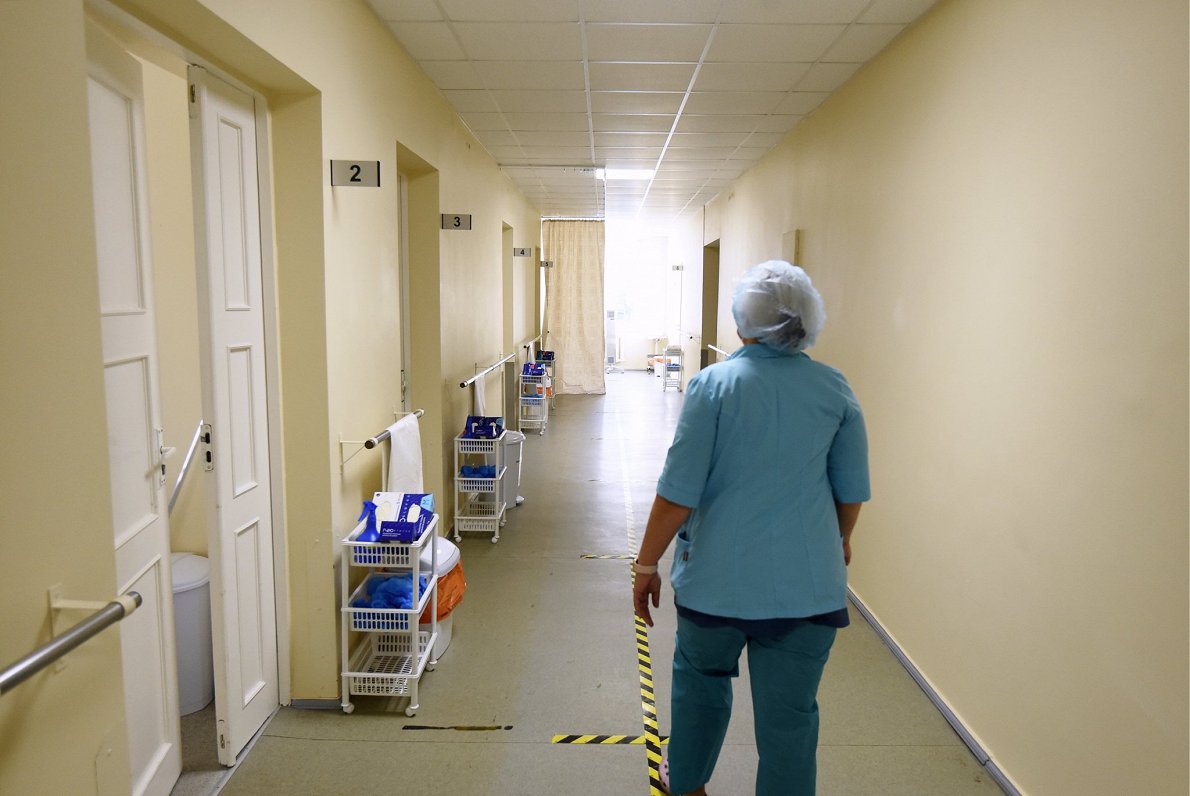Latvian Radio met with doctor Mareks Marčuks, born in Rēzekne, eastern Latvia, where the proportion of Russian speakers is higher. He currently works both at the Rēzekne hospital as a pediatrician, as well as at the Children's Clinical University Hospital in Rīga. Mareks said he has no issues communicating with patients, but he has noticed that among young doctors the knowledge of Russian is lower.
"When comparing older colleagues with us, young interns, their language knowledge is not so good. There were several colleagues in our primary studies who really did not know the Russian language. When we had to go in the hospital environment, in practical work with patients, they were targeting Latvian patients," Mareks said.
He stressed that there is one official language in Latvia – Latvian, and therefore no doctor can be required to know the Russian language to work with patients. The doctor also acknowledged that the main purpose of a doctor is to understand the patient's complaints and help, so, undeniably, in the reality of this moment, the Russian language is still an advantage.
The issue of language in the medical environment is apparently not a topic about which young doctors speak freely. Some of the doctors addressed by Latvian Radio refused the conversation because they were concerned about the possible consequences. One of the interviewees refused the conversation since they had received advice from the management not to talk about the subject.
The role of the language barrier was acknowledged by Liene Cipule, Head of the Emergency Medical Service (NMPD). She said that Russian language knowledge was not a requirement for work at the NMPD. She said that there were regional differences, so, for example, brigades from Latgale are usually happy to be relocated to Rīga since the knowledge of Russian is usually not a problem.
“At the time of Covid-19, when we carried out the relocations of brigades from different regions to Rīga, colleagues traveling from Kurzeme, Vidzeme, did not want to be relocated due to language [in Rīga] where in fact every other call or even more is made in Russian. [..] The Latgale region is very happy to go to Rīga to replace colleagues because they do not have these problems with Russian communication,” Cipule said.
Mareks Marčuks said that in private conversations with colleagues, the language aspect is sometimes mentioned, but it is not a deciding factor of choosing the city or hospital to work at. to sound. The man didn't mention any cases where it would have played a crucial role in deciding whether to start work in one or the other region and hospital.
"We team up in the hospital – colleagues who do not speak Russian freely ask, Come with me! I'll need you to translate something, or come in the office and whisper What does this phrase mean? This is important for me to communicate with my patient."
Grigorijs Semjonovs, head of the regional hospital in the largely Russian-speaking Daugavpils, said that there have not been cases where someone would have explicitly refused work due to language. Russian is one of the daily working languages at Daugavpils hospital, but so far every situation has been resolved. There have been no problems for young colleagues who do not know Russian so well.
"Yes, we have the specifics, we are here next to the border, but we're used to it. And we have quite a multi-national working environment. Sometimes it may be that if a person does not really understand Russian, but needs to develop a history, communicate with the patient, a nurse comes and helps, translates," Semjonovs said.
The head of NMPD, Liene Cipule, said that sometime in the future a time might come that the service could not always provide communication in Russian.
“Indeed, the knowledge of Russian for young people differs significantly from the older colleagues. In view of the fact that we have retiring colleagues every year, we really need to start counting on and preparing that, at some point, our medics working in brigades and those working in the operational management center will not always be able to provide Russian communication,” Cipule said.
Artūrs Šilovs, head of the Latvian Association of Young Doctors, said that if the young doctor does not speak Russian, but the patient does not speak English, the situation is dealt with by bringing another colleague to the department. However, Šilovs also called on the public to understand the reality of the situation: elderly people often go to doctors, and they often speak Russian.
“We have to understand the reality that we have enough people in health care who do not speak Latvian – in this case speaking Russian. And that must be taken into account. But in all these cases, colleagues are generally very supportive. They're ready to help. There is always an exit and a solution,” Šilovs said.
The Association of Young Doctors is conducting annual surveys identifying 10 main problems in the internship process, which young doctors believe should be addressed. Šilovs said that the question of language has not yet appeared on this table.





























